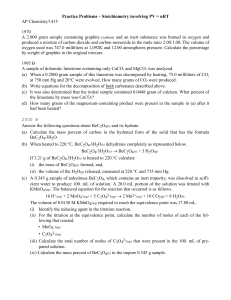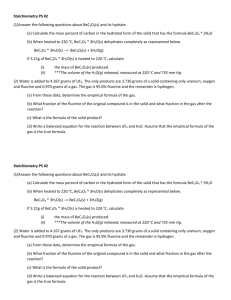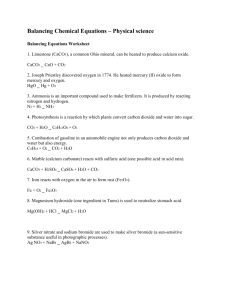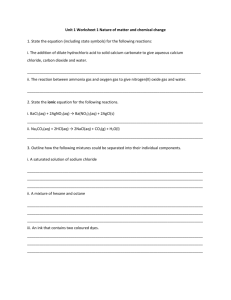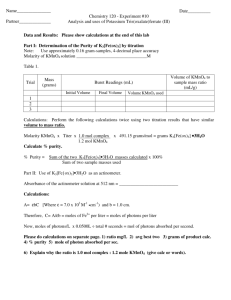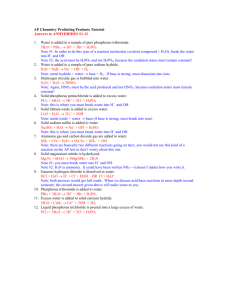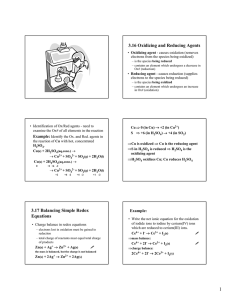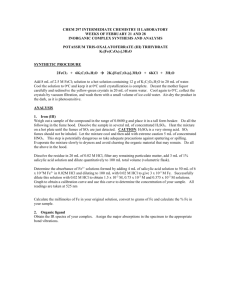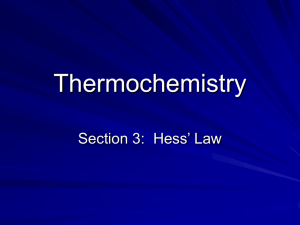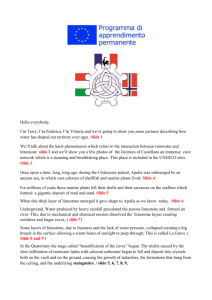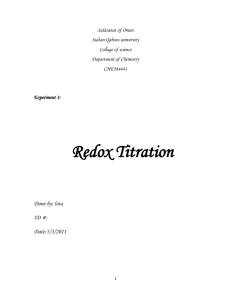Download: Chapter 3 Real AP CRQ
advertisement
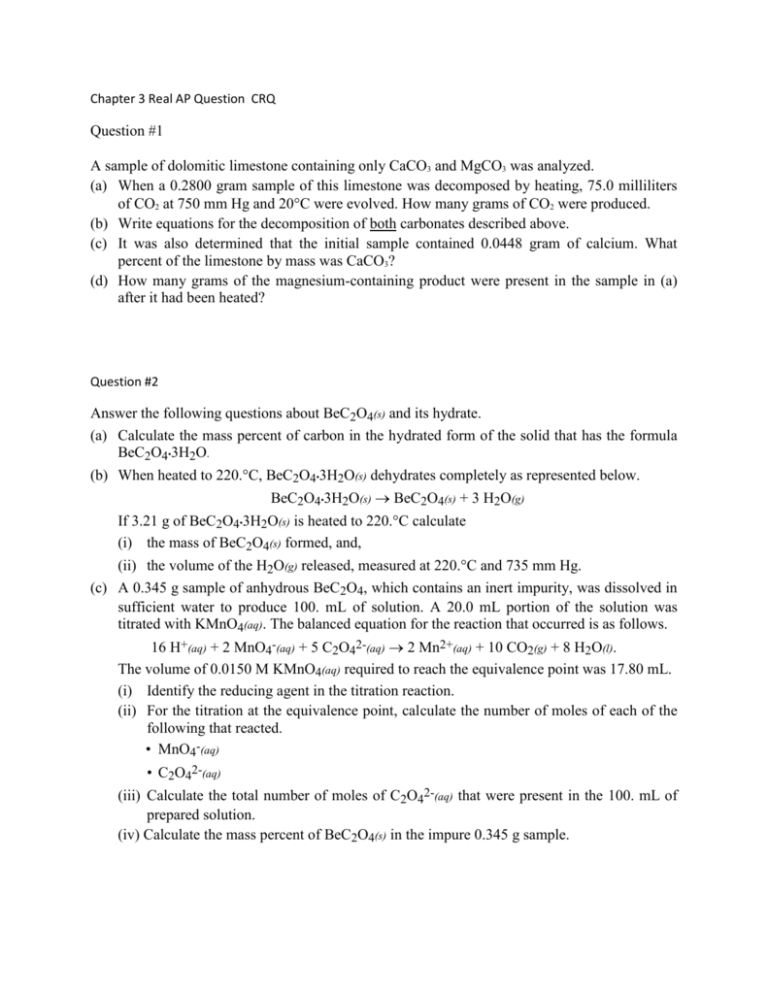
Chapter 3 Real AP Question CRQ Question #1 A sample of dolomitic limestone containing only CaCO3 and MgCO3 was analyzed. (a) When a 0.2800 gram sample of this limestone was decomposed by heating, 75.0 milliliters of CO2 at 750 mm Hg and 20C were evolved. How many grams of CO2 were produced. (b) Write equations for the decomposition of both carbonates described above. (c) It was also determined that the initial sample contained 0.0448 gram of calcium. What percent of the limestone by mass was CaCO3? (d) How many grams of the magnesium-containing product were present in the sample in (a) after it had been heated? Question #2 Answer the following questions about BeC2O4(s) and its hydrate. (a) Calculate the mass percent of carbon in the hydrated form of the solid that has the formula BeC2O4•3H2O. (b) When heated to 220.C, BeC2O4•3H2O(s) dehydrates completely as represented below. BeC2O4•3H2O(s) BeC2O4(s) + 3 H2O(g) If 3.21 g of BeC2O4•3H2O(s) is heated to 220.C calculate (i) the mass of BeC2O4(s) formed, and, (ii) the volume of the H2O(g) released, measured at 220.C and 735 mm Hg. (c) A 0.345 g sample of anhydrous BeC2O4, which contains an inert impurity, was dissolved in sufficient water to produce 100. mL of solution. A 20.0 mL portion of the solution was titrated with KMnO4(aq). The balanced equation for the reaction that occurred is as follows. 16 H+(aq) + 2 MnO4-(aq) + 5 C2O42-(aq) 2 Mn2+(aq) + 10 CO2(g) + 8 H2O(l). The volume of 0.0150 M KMnO4(aq) required to reach the equivalence point was 17.80 mL. (i) Identify the reducing agent in the titration reaction. (ii) For the titration at the equivalence point, calculate the number of moles of each of the following that reacted. • MnO4-(aq) • C2O42-(aq) (iii) Calculate the total number of moles of C2O42-(aq) that were present in the 100. mL of prepared solution. (iv) Calculate the mass percent of BeC2O4(s) in the impure 0.345 g sample.
